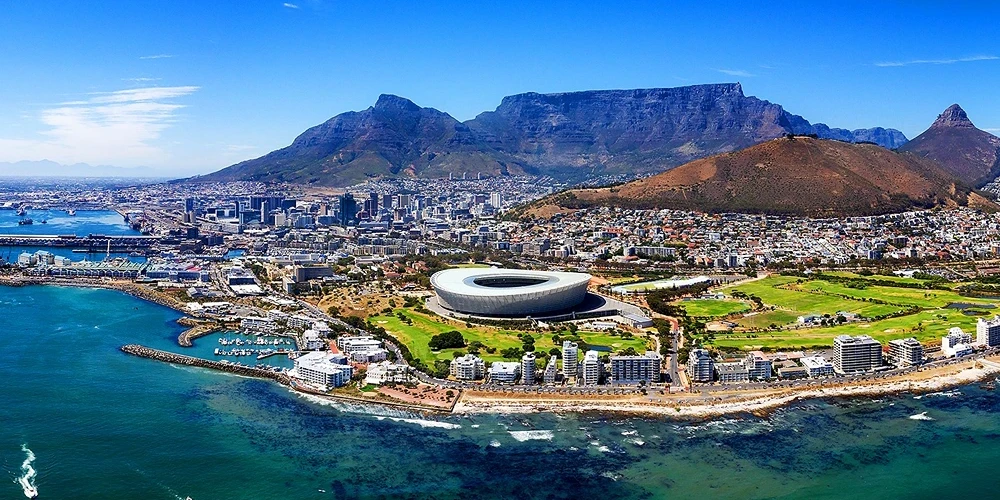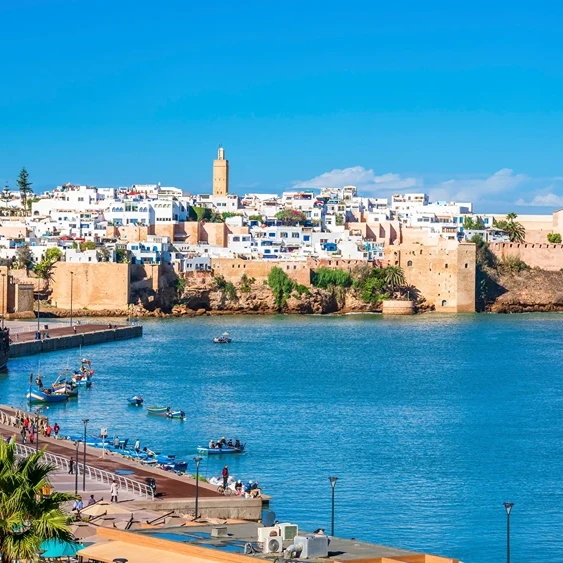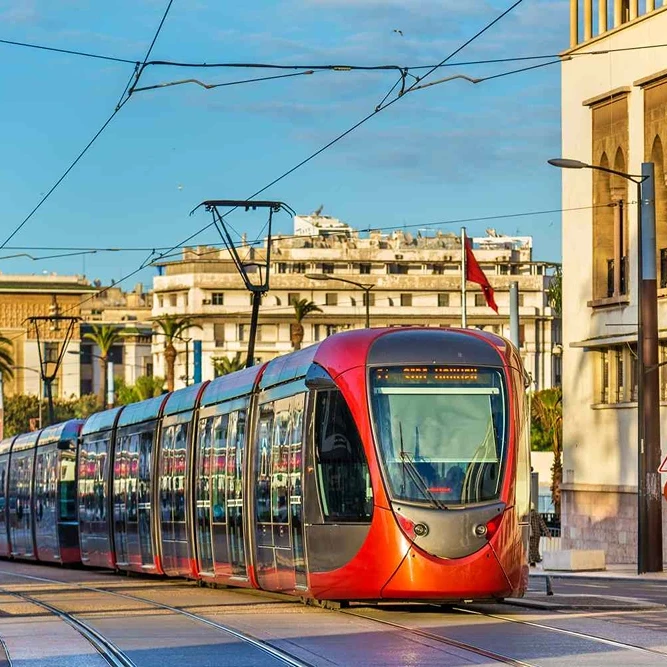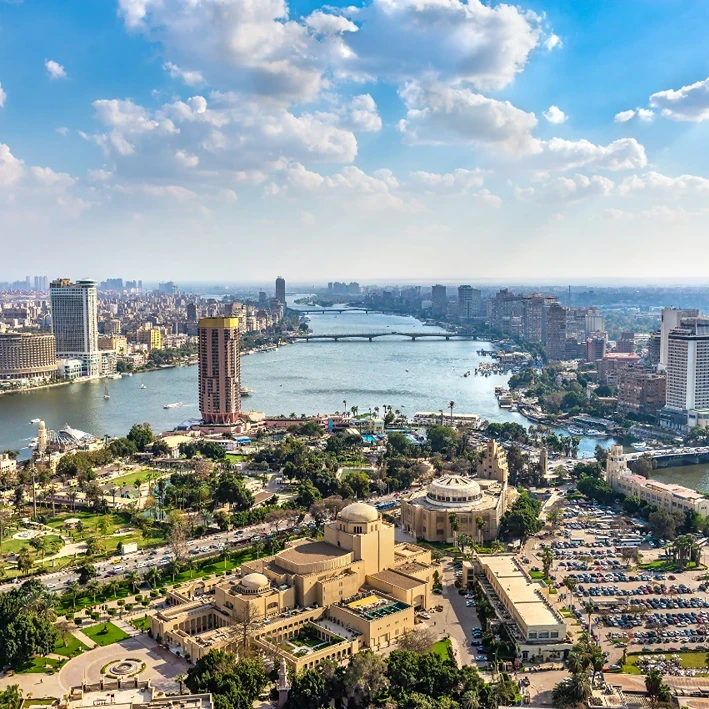Thinking about how to navigate South Africa’s vast landscapes? While public transportation offers various options, knowing the ins and outs is crucial for a smooth journey. From the comforts of Greyhound buses to the uncertainties of minibus taxis, understanding these modes can make or break your travel experience. Before you embark on your journey, it’s crucial to familiarize yourself with the visa requirements for South Africa. This ensures that you have all the necessary documentation in place, avoiding any last-minute hassles at the airport or border control. Knowing the visa requirements can save you from potential delays and allow you to focus on enjoying the diverse transportation options available in the country. Here are top tips to get around South Africa efficiently and safely. This guide will cover buses, taxis, trains, and more, helping you make informed decisions and maximize your time in this incredible country. Let’s dive into the details of using South Africa’s public transportation network effectively.
Table of Contents
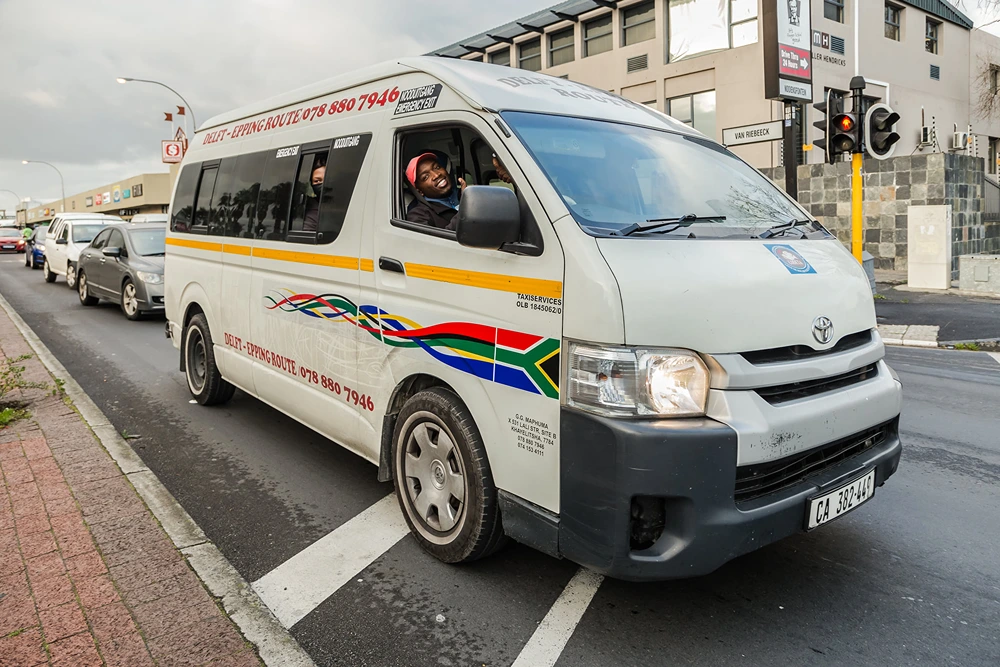
Public Transport Options in South Africa
Public transport is essential for navigating South Africa, particularly for those who do not plan to rent a car. It connects major cities and offers a range of options for both short and long-distance travel.
- Greyhound: Known for its reliability and comfort, Greyhound offers air-conditioned buses with onboard toilets. Example fare: Cape Town to Paarl (R185).
- Intercape: Another reputable company, Intercape provides a safe and comfortable travel experience. Their buses are equipped with air conditioning and restrooms.
- Translux: A popular choice for long-distance travel, Translux buses are comfortable and come with essential amenities.
- MyCiTi: This is a local bus service in Cape Town, known for its reliability and coverage across the city.
- Rea Vaya: Johannesburg’s local bus service, offering extensive routes within the city.
Minibus Taxis
Minibus taxis are a common mode of transport for short distances in South Africa. While they are prevalent and inexpensive, they can pose safety risks due to overcrowding and less stringent maintenance. It is advisable to use them with caution and preferably during daylight hours.
Train travel in South Africa, though slower, offers a comfortable alternative for overnight journeys. For instance, the train journey from Johannesburg to Cape Town takes approximately 29 hours. This mode of transport allows for significant savings on accommodation and provides a more relaxed travel experience compared to other options.
Car Rentals and Self-Driving in South Africa
Renting a car is essential for exploring South Africa’s national parks and remote coastal areas. This mode of transport provides the flexibility and freedom necessary for reaching destinations that are otherwise inaccessible. For those looking to explore the country by road, the best road trips in South Africa offer an incredible way to see the diverse landscapes and hidden gems. Whether you’re driving through the Garden Route or exploring the rugged terrains of the Wild Coast, these road trips provide unforgettable experiences.
- Prebooking: Booking your rental car through a travel agent can offer better deals, such as unlimited mileage and lower insurance excesses.
- Documentation: Foreign licenses are valid for six months if printed in English. Always carry your driving license and passport (or certified copies). Additionally, understanding the visa requirements for South Africa is crucial for a hassle-free travel experience. Ensuring that you have the correct visa not only allows you to explore the country legally but also helps in avoiding any last-minute complications at the border. Whether you are planning a short visit or a longer stay, being well-informed about the visa process can save you time and stress.
- Insurance: Opt for comprehensive insurance to cover potential damages and theft.
- Vehicle Choice: For rugged terrains, consider renting a 4×4 vehicle.
- Fuel: Familiarize yourself with the location of petrol stations, especially in remote areas.
- Rental Agencies: Major rental companies like Avis, Hertz, and Budget have multiple locations across the country.
Local Driving Tips
Driving in South Africa can be different from what many foreign travelers are used to. Here are some practical tips:
- Drive on the Left: South Africans drive on the left side of the road.
- Speed Limits: Adhere to speed limits which are typically 60 km/h in urban areas, 100 km/h on secondary roads, and 120 km/h on highways.
- Road Signs: Familiarize yourself with local road signs, which may differ from those in your home country.
- Safety: Lock your doors and keep valuables out of sight to avoid opportunistic theft.
- Emergency Numbers: Know the local emergency numbers for roadside assistance and police services.
Road conditions in South Africa can vary significantly. While major highways and urban roads are generally in good condition, rural and remote areas may have poor or unpaved roads. It’s important to always carry the necessary documentation, including your driving license and passport, to avoid legal issues.
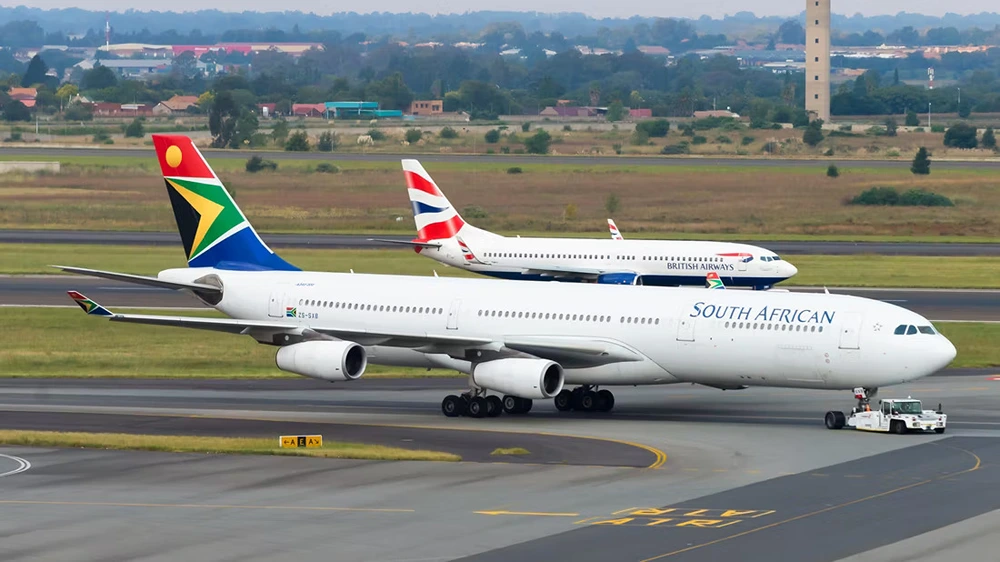
Domestic Flights for Efficient Travel
Flying within South Africa is one of the most efficient ways to cover long distances. Domestic flights offer a time-saving alternative to driving, especially when traveling between major cities like Cape Town, Durban, and Johannesburg.
- British Airways Comair: Covers major cities including Cape Town, Durban, and Johannesburg.
- Mango Airlines: Known for competitive pricing and serves key routes.
- Kulula.com: Budget-friendly and operates on popular routes.
- FlySafair: Offers low-cost flights between major cities.
- SA Airlink: Connects regional airports and smaller towns with major cities.
Cost and Booking Tips
- Early Booking: Secure the best prices by booking your flights well in advance.
- Promotions: Look out for special promotions and discounts offered by airlines.
- Comparison Websites: Use flight comparison websites to find the best deals.
- Flexibility: Being flexible with your travel dates can help you find cheaper flights.
- Baggage Fees: Check the baggage policies of budget airlines to avoid unexpected fees.
Traveling long distances by air is significantly faster compared to driving, especially given the extensive network of major highways that can be time-consuming to navigate. Domestic flights are particularly advantageous when traveling from one end of the country to the other, such as from Cape Town in the south to Johannesburg in the north.
Using Ride-Sharing and Taxi Services
Ride-sharing apps have gained significant popularity in South Africa, especially in major cities. These services offer a convenient and often safer alternative to traditional taxis. Among the most widely used ride-sharing apps is Uber, which operates extensively in cities like Johannesburg and Cape Town. By using such apps, travelers can enjoy the comfort of knowing their driver is vetted, the route is tracked, and payment is handled electronically.
- Uber: Highly popular, with extensive coverage in major cities.
- Bolt: Another reliable ride-sharing app with competitive pricing.
- DiDi: Emerging as a popular option, particularly in urban areas.
Safety Tips for Taxi Services
Safety is a primary concern when using taxi services in South Africa. Here are some practical tips to ensure a safe journey:
- Verify the Driver: Always check the driver’s details and vehicle information before getting in.
- Keep Valuables Out of Sight: Avoid displaying expensive items to deter theft.
- Share Your Ride: Use the ride-sharing app’s feature to share your trip details with a friend or family member.
- Avoid Late-Night Rides: If possible, avoid taking taxis late at night, especially in unfamiliar areas.
- Sit in the Back: Sitting in the back seat can provide an extra layer of safety and comfort.
Local taxis, often referred to as minibus taxis, are prevalent throughout South Africa and are known for their affordability. However, they can pose safety risks due to overcrowding and less stringent vehicle maintenance. It’s advisable to use local taxis during the day and to seek local advice on the safest options. While they offer a budget-friendly way to get around, caution is necessary to ensure a safe experience.
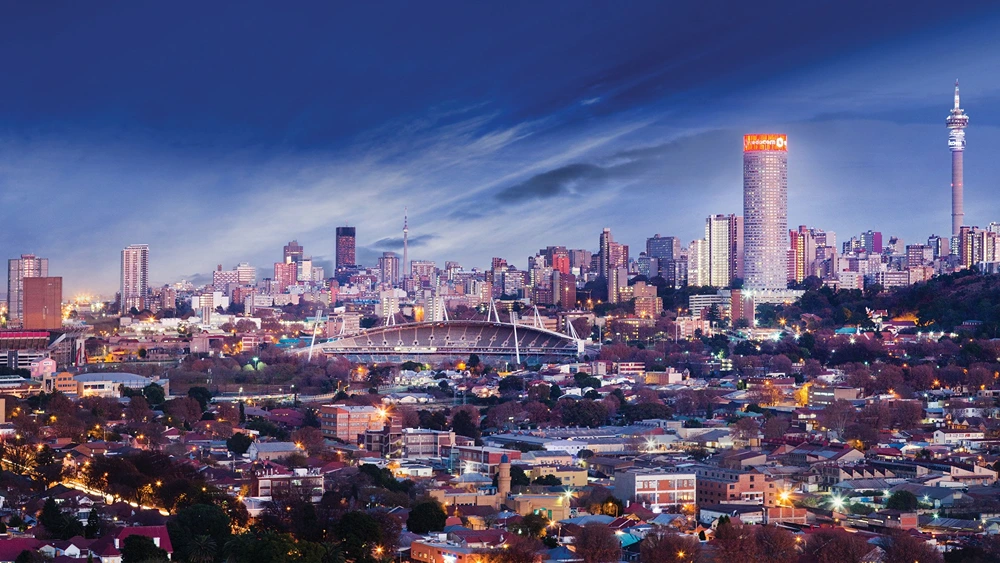
Exploring Major Cities: Johannesburg, Cape Town, and Durban
Navigating South Africa’s major cities—Johannesburg, Cape Town, and Durban—can be straightforward with the right transport options. Each city has its own unique modes of transportation that cater to both locals and tourists. To make the most of your visit, consider exploring the best places to visit in South Africa. From the vibrant streets of Johannesburg to the scenic beauty of Cape Town and the warm beaches of Durban, these destinations offer something for every traveler. Discover the top attractions and hidden gems that make South Africa a must-visit destination.
Johannesburg
Johannesburg, the economic hub of South Africa, offers a variety of transport options. Ride-sharing apps like Uber and Bolt are widely used and provide a safe and convenient way to get around. Public buses, particularly those operated by Rea Vaya, cover extensive routes within the city and are a reliable option for daily commutes.
Cape Town
Cape Town is renowned for its scenic beauty and diverse transport options. The MyCiTi bus service is a popular choice for both locals and visitors, offering efficient routes that cover major areas of the city. For those looking to explore at a slower pace, bike rentals are readily available and offer a healthy and eco-friendly way to see the sights. Getting around Cape Town without a car is quite feasible due to these comprehensive transport networks.
Durban
Durban, known for its warm climate and beautiful beaches, has a reliable network of minibus taxis and public buses. Minibus taxis are prevalent and offer an inexpensive way to travel short distances, though they can be crowded. The bus services in Durban are dependable, making it easy to navigate the city without a personal vehicle.
| City | Transport Options |
|---|---|
| Johannesburg | Ride-sharing, Buses (Rea Vaya) |
| Cape Town | MyCiTi Buses, Bike Rentals |
| Durban | Minibus Taxis, Buses |
Safety Tips for Traveling in South Africa
Safety awareness is crucial when traveling in South Africa. Always being conscious of your surroundings and adhering to local advice can significantly enhance your safety.
- Be alert and aware of your surroundings at all times.
- Avoid displaying valuables, such as jewelry and electronics, in public.
- Use reputable transportation services, especially for long journeys.
- Stick to well-lit and populated areas, particularly at night.
- Keep your accommodation details and travel itinerary private.
Emergency Numbers
Knowing emergency contacts can be vital in ensuring safe travel. Here are some essential numbers to have on hand:
| Service | Contact Number |
|---|---|
| Police | 10111 |
| Ambulance | 10177 |
| Nationwide Emergency Response | 112 |
Traveling with a local guide can greatly enhance your safety. They are familiar with the local environment and can provide valuable insights and advice on the safest routes and areas.
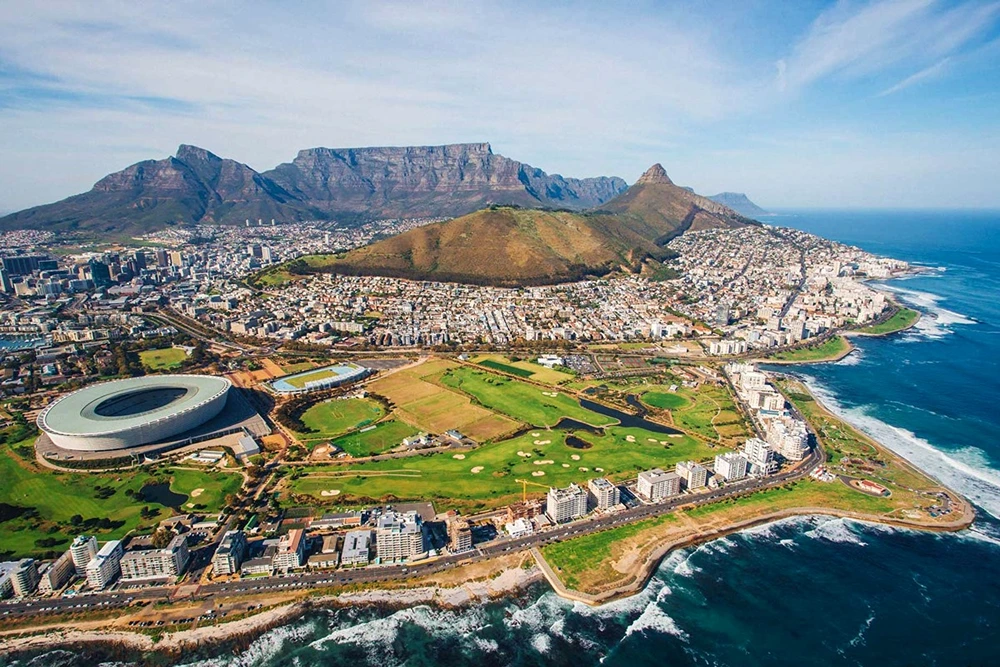
Cost and Budgeting for Travel in South Africa
Understanding the cost landscape of traveling in South Africa is crucial for efficient budgeting. The cost of travel varies significantly depending on the mode of transport and distance traveled. Buses are generally the most affordable option, while domestic flights offer competitive pricing for longer distances. Renting a car provides flexibility but can be more expensive. For a comprehensive guide on managing your travel expenses, check out our detailed article on money and costs for South Africa. This resource will help you plan your budget effectively, ensuring you get the most out of your trip without overspending.
- Buses: Typically the most affordable option. Example fare: Cape Town to Paarl (R185).
- Domestic Flights: Competitive pricing, with budget airlines like Mango offering deals as low as R800 for a one-way trip between major cities.
- Car Rentals: Costs vary, with daily rates starting around R250, excluding fuel and insurance.
- Minibus Taxis: Very affordable for short distances but less reliable in terms of safety.
- Trains: Example fare: Johannesburg to Cape Town (R700 for a one-way ticket).
Budget Tips
Saving money while traveling in South Africa can be achieved through various strategies:
- Prebooking: Reserving your transport options in advance often secures the best prices.
- Promotions: Keep an eye out for special deals and discounts offered by airlines and bus companies.
- Flexibility: Being flexible with your travel dates can help you find cheaper options.
- Comparison Websites: Use these to compare prices and find the most affordable deals.
- Travel Passes: Some cities offer travel passes for unlimited use of public transport within a certain period.
Prebooking and looking for discounts can significantly reduce travel expenses. This approach not only ensures the best rates but also provides peace of mind, knowing that your transport arrangements are secured ahead of time.
Final Words
Navigating transportation in South Africa offers a range of options, from intercity buses and minibus taxis to car rentals and domestic flights.
Understanding the best transport methods for different regions and travel needs ensures a smoother journey.
For getting around in South Africa, combining public transport, rental cars, and flights can provide both convenience and cost-efficiency.
Embracing local transport insights and safety tips enhances the travel experience.
By planning and utilizing various transportation options, travelers can enjoy a well-rounded and safe adventure in South Africa.
FAQ
How do you get around in South Africa?
Do you need a car in South Africa?
What is the safest way to travel in South Africa?
Is it safe to drive around South Africa as a tourist?
How do goods get around in South Africa?
How to get around Cape Town?
Travel to South Africa requirements
South Africa travel tips
Cheapest way to get to South Africa
Blue Train South Africa
Best time to visit South Africa
Hazel Wall is a passionate traveler, writer, and explorer dedicated to sharing her experiences and insights with fellow adventurers. With a background in journalism and a deep love for discovering new cultures, Hazel has journeyed across continents, immersing herself in diverse landscapes and traditions.


